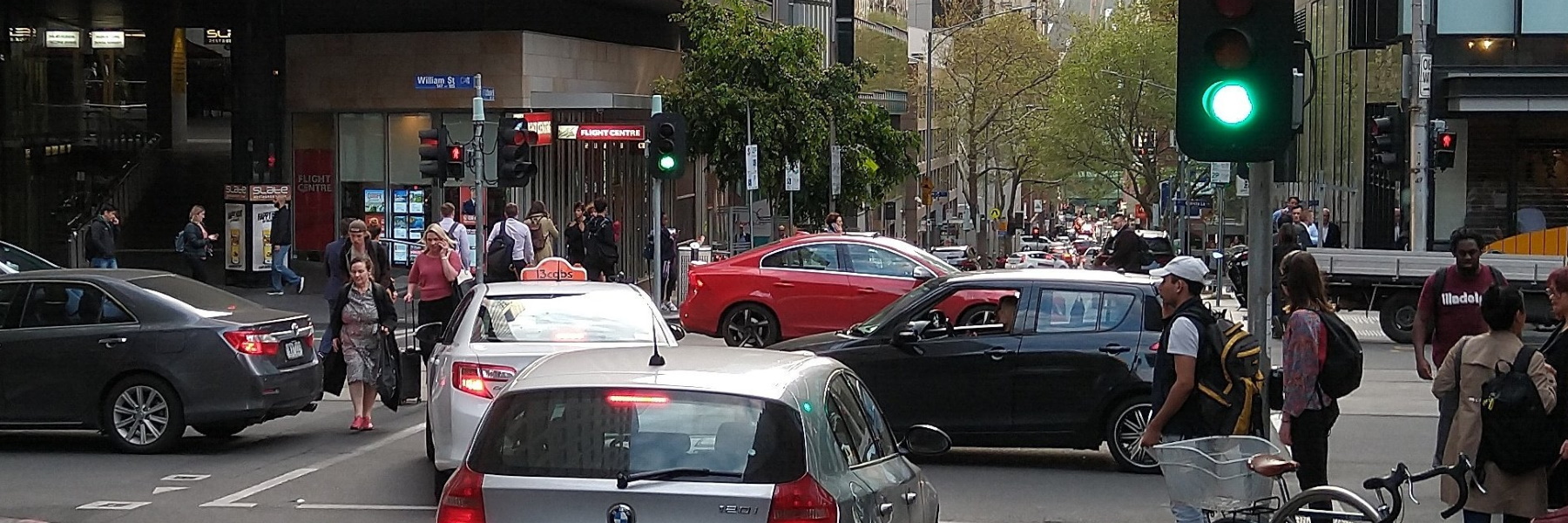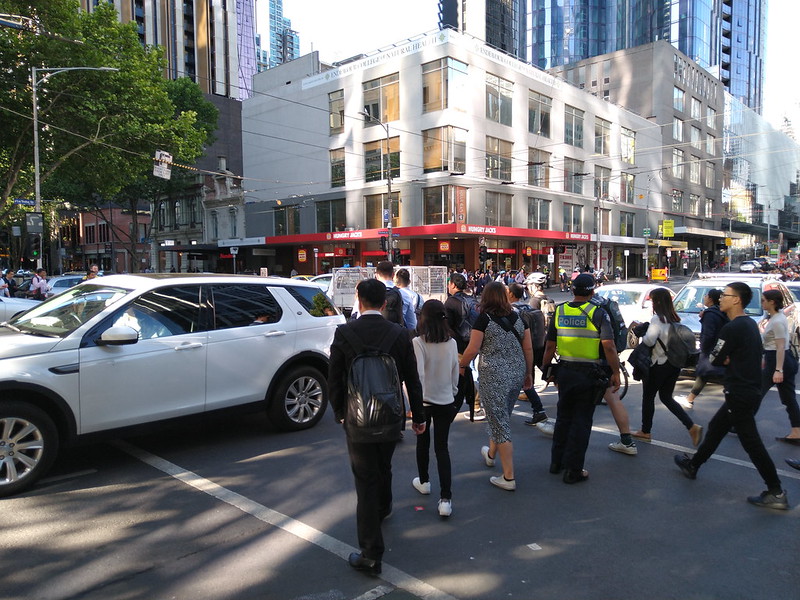Tony Abbott, in a way, was right:
“The humblest person is king in his own car.”
Tony Abbott, Battlelines
I can see his point here. I don’t know about them being humble, but (especially as a pedestrian or a cyclist) you see plenty of people in their cars who think they are royalty.
The problem is Abbott believes this should be accommodated and encouraged, by building new roads (no matter how economically flawed) and by not building public transport.
Anyway, I’ve found a strong counter argument to Abbott’s point:
“If you live in your suburban castle, and you only ever go out in your suburban land yacht, and the only humans you ever interact with are clerks, it’s the Target checker or your barista at Starbucks, you lose that sense of sociality – you start thinking of yourself as a driver, as a consumer.
“So what’s good for drivers and consumers? That starts to be how you interact with civic life, through that lens: I’ve got to defend my parking, and my access to my local Starbucks.
“I honestly think that suburban living on a subtle, sort of subterranean level, pulls you in the direction of sociopathy. It pulls you in the direction of antisocial thinking and attitudes.
“And conversely, just being out around among people gives you more of a sense of social solidarity, and more of a sense of being in it, together, and having to accommodate other peoples perspectives.”
David Roberts (Vox) – The War On Cars podcast, episode 24
Is this extreme? Perhaps.
Is it stereotyping people? Yes.
But I think it’s making a really interesting point – and it only takes a few people behaving like this to make life difficult for everybody else.
The podcast contains other moments of gold, including this:
“We think of cities as so crowded, but that’s because almost all of the space in them we’ve given over to cars.”
And this:
“Public space is what makes a city. If you don’t have public space, you just have an urban area.”


5 replies on “King in your car”
Thanks for bringing this podcast to my attention Daniel, i’ve been in a bit of a podcast rut of late and this is just what I need :)
We all have to co-exist.
I love spending a weekend at Wilsons Prom. A car is the most practical way of getting there (for a family with camping gear).
And I commute into the city by train 5 days a week.
And I ride a bike mostly on a bike path or bike lane.
I don’t feel humble or like royalty doing any of these things. It’s just enjoying life.
Public space is definitely what makes a city.
Recently in seville, Madrid, Barcelona, Paris where they are making great efforts to reclaim the cities and close down whole areas to traffic, the atmosphere is so much more pleasantly relaxing. People linger at cafe tables filling spaces once used for parking and strolling around the boutiques. So seems good for business, the absence of traffic definitely makes the city more pleasant and people less hurried and more social.
@shayne
That is correct, the benefits outweigh the cost.
Less pollution, better health, more visitors and tourists, lower crime rates etc
And definitely gets people to socialise better, have you heard of footpath rage, you just walk around the person texting on his/her phone.
I came across this article the other day – looks like some prominent Tasmanians are still pushing the “freedom machine” line: https://mobile.abc.net.au/news/2019-12-04/public-transport-and-congestion-hobart-cars/11728076